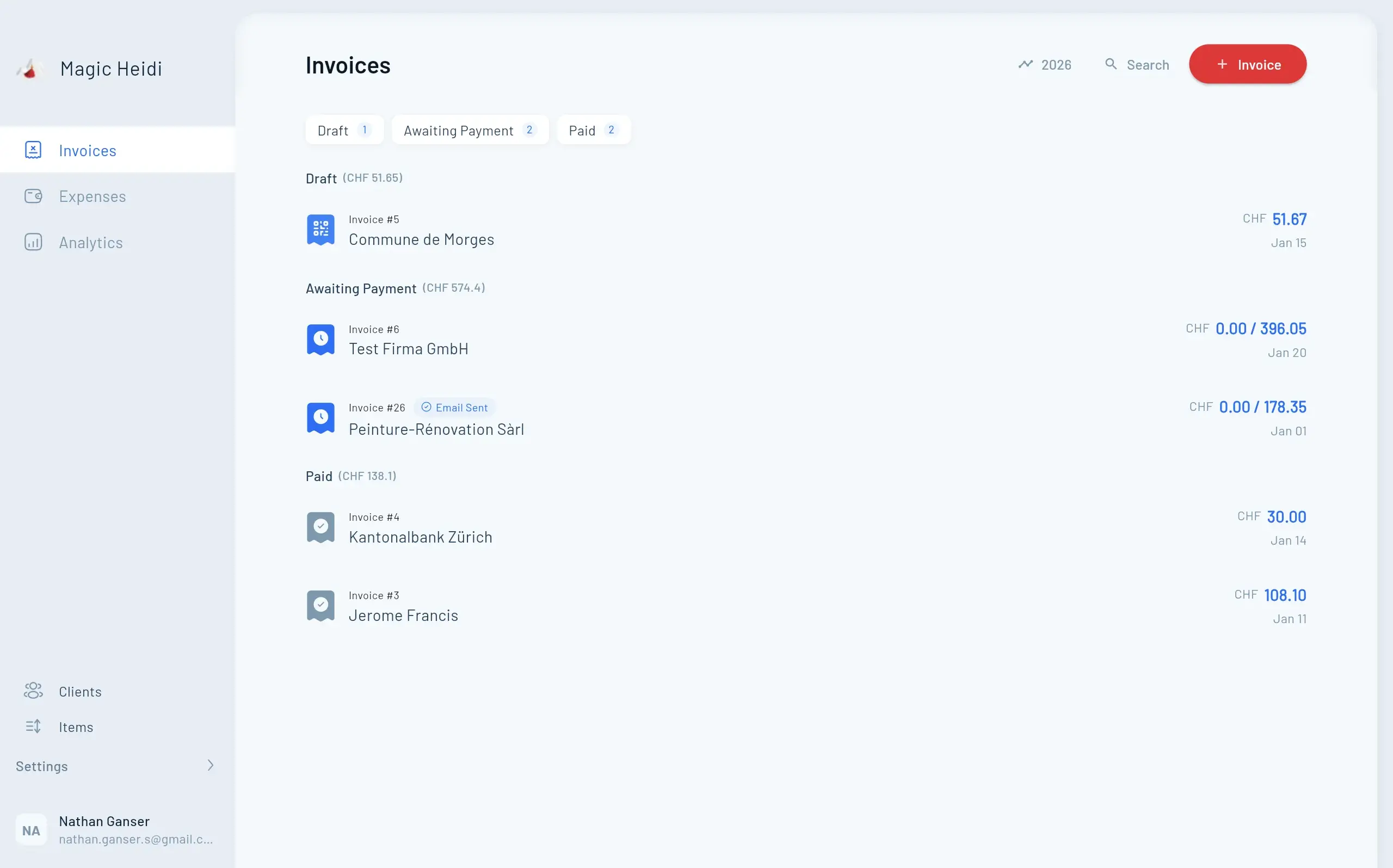What to Do After My Studies? (Switzerland) Choose a Path, Prove Value Fast, and Start Earning
A Swiss-focused guide to choose between employee, freelance/self-employed, or academia/public sector—plus a practical 30/60/90‑day plan and first freelancing admin steps.

Finishing university feels like stepping off a well-marked trail and into open terrain. Suddenly, the rules change:
- There’s no syllabus.
- No grades.
- No “right” answer that arrives in a neat PDF.
If you’re asking “what to do after my studies?” you’re not behind—you’re at the exact moment where a good framework makes everything easier.
This guide is written for Swiss students and recent graduates (and international graduates in Switzerland) who are choosing between three realistic directions:
- Employee path (get a job)
- Freelance / self-employed path (build income through clients)
- Academia / public sector path (research, teaching, government or NGOs)
You’ll get a decision framework, examples of how to “prove value” in the Swiss market, and a 30/60/90‑day plan you can follow immediately.
Last updated: 2026-01-26

The shift you must make: from consumer to producer
For most of your life, education rewarded you for consuming information: lectures, readings, exams, essays. You invested effort—and someone (family, scholarships, the state, savings) covered the majority of the costs while you learned.
After graduation, the world rewards you for producing value:
- solving a problem,
- improving a process,
- creating revenue,
- reducing risk,
- saving time,
- delivering outcomes for real people.
This is not a moral statement. It’s a practical one. Independence—career, financial, professional—comes from producing more value than you consume.
The good news: you don’t need to have everything figured out. You just need to start testing where your skills create value.
Why this matters now (Swiss job market reality)
In Switzerland, hiring has been more competitive in parts of the market recently: vacancy trends cooled in 2025, and some graduate-heavy areas (including parts of IT) saw sharper declines. At the same time, skill requirements are shifting faster—especially in roles affected by AI and automation.
Translation: credentials alone are less persuasive than proof. The graduates who move fastest are the ones who can show:
- what they can do,
- who they did it for,
- what changed because of their work.
That’s true whether you pursue employment, freelancing, or academia.
The post‑study reality: Proof beats credentials.
Swiss hiring is competitive and skill requirements shift quickly—especially in roles touched by AI. Reduce uncertainty by choosing a default path, validating with the market, and building proof of value.
No more syllabus
You need your own framework and feedback loop.Credentials aren’t enough
Hiring rewards evidence of outcomes.Move fast with proof
Portfolio + references + clear positioning.Step 1: Choose a direction (for now)—Employee vs Freelance vs Academia/Public Sector
You don’t need a permanent decision. You need a default path for the next 90 days.
A simple decision matrix (score each 1–5)
Rate how important each factor is to you, then see which path fits best.
| Factor | Employee | Freelance / Entrepreneur | Academia / Public sector |
|---|---|---|---|
| Income stability | 5 | 2–4 | 4–5 |
| Autonomy / freedom | 2–3 | 5 | 2–4 |
| Fast skill growth via doing | 3–4 | 5 | 3–4 |
| Clear structure & mentorship | 4 | 2–3 | 4 |
| Risk tolerance required | 2 | 4–5 | 2 |
| Mission / public impact | 3 | 3–4 | 4–5 |
| Speed to first income | 3–4 | 3–5 | 2–4 |
Use this as a conversation starter with yourself—not a final verdict.
The Employee track
Best for structure, fast learning, and stability.

Choosing a job after university isn’t “selling out.” It’s often the fastest way to:
- learn professional standards,
- get feedback from experienced teams,
- build a network,
- earn stable income,
- discover what you actually like doing daily.
When the employee path is a strong fit
- You want stability (rent, insurance, predictable cash flow).
- You learn best with clear expectations and mentorship.
- You want to develop a specialty inside a team.
- You’re not sure what you want yet (and want paid exploration).
How to stand out in Switzerland as a graduate
Instead of only listing coursework, build proof that you can produce value:
- 1–2 mini case studies (even from student projects) written like business outcomes:
- the problem,
- what you did,
- the result (time saved, quality improved, engagement increased).
- A portfolio (for any role—even analytics, operations, HR, comms).
- A tight LinkedIn headline that says what you do and who you help.
Example headlines
- “Junior Data Analyst | Turns messy spreadsheets into decision-ready dashboards”
- “Marketing graduate | Creates content systems that generate qualified leads”
- “Junior UX researcher | Turns user interviews into clear product priorities”
Your job search should be a feedback engine
Even if you don’t feel “ready,” apply. Interviews teach you what the market values. Each rejection gives you a clue: missing skill, unclear narrative, weak portfolio, or mis-targeted roles.
The Freelance / self-employed track
Best for autonomy and fast market validation.

If you want independence—or you’re job hunting but want momentum—freelancing can be a smart bridge.
Freelancing is simply this: solve a problem for someone who pays you.
You don’t need a “startup idea.” You need an offer that helps a specific person or business.
When freelancing is a strong fit
- You want autonomy and ownership.
- You can tolerate uncertainty and self-direction.
- You’re willing to sell (gently, professionally).
- You want to build a portfolio quickly—on real problems.
Beginner-friendly freelance services (Swiss reality)
These are common “first services” graduates can deliver without building a full company:
- Tutoring / exam coaching (languages, math, statistics, finance)
- Translation & proofreading (DE/FR/IT/EN is a Swiss advantage)
- Social media & content for local businesses
- Basic web updates (WordPress, Shopify, landing pages)
- Design (presentations, brochures, simple brand kits)
- Operations support (invoicing cleanup, spreadsheet automation, scheduling)
- Research assistance (literature scans, survey analysis)
- Photo/video editing for creators and SMEs
A simple “first offer” template
If you’re stuck, use this:
“I help specific client type achieve specific outcome in timeframe without common pain.”
Examples:
- “I help Zürich-based therapists get 10+ qualified inquiries/month with a simple website + Google profile setup—without ads.”
- “I help small restaurants standardize their menus and online listings in 2 weeks—without constant back-and-forth.”
Freelancing is easiest when your offer is narrow and outcome-based.
Academia / public sector
Best for depth, mission, and structured progression.

Staying in academia or moving into government/NGOs can be the right call—not a default delay tactic.
When this path is a strong fit
- You enjoy deep work and specialization.
- You want mission-driven outcomes and public impact.
- You value stable structures, clear progression, and institutional support.
- You’re aiming for roles where credentials matter more (e.g., research, certain regulated domains).
Watch-outs (so you choose it consciously)
- You may delay exposure to market feedback (what people will pay for).
- Some environments move slower and can limit rapid income growth.
- It’s easy to stay because it’s familiar—not because it’s aligned.
A good test question:
If you weren’t afraid, would you still choose this path?
Step 2: Validate with the market quickly (don’t overthink for 6 months)
No matter the path, your goal is the same: reduce uncertainty fast.
Market validation methods (choose 2 this week)
- Job applications (even “stretch” roles) to learn requirements
- Informational interviews (15 minutes, 1–2 per week)
- Trial projects (small, defined deliverable)
- Volunteering strategically (only if it produces proof—portfolio + reference)
- Freelance outreach (10 high-quality messages to local businesses)
Validation beats contemplation. Every week without feedback increases anxiety.
Step 3: Build your “proof of value” assets (these work for all paths)
Think of these as career assets you can reuse across jobs, clients, and applications.
1) One-page positioning statement
Write a short paragraph you can paste into emails/LinkedIn:
- Who you are
- What you do
- What outcomes you create
- What proof you have (project, portfolio, internship, metrics)
2) A portfolio—even if you’re not “creative”
Portfolio doesn’t mean Dribbble.
Examples by field:
- Business/finance: 1-page analysis of a public company + model snapshot
- Data: dashboard + short explanation + GitHub/Notion link
- Marketing: campaign teardown + content calendar sample
- Operations: process map + spreadsheet automation demo
- Research: structured literature review + summary table
- Education: lesson plan + student outcomes + testimonials
3) References and credibility signals
Collect:
- 1–2 LinkedIn recommendations
- 2 short testimonials (even from professors, internship supervisors, volunteer orgs)
- A “work samples” folder you can share quickly
Your first 5 admin moves in Switzerland
Freelancing is easier when admin is clean from day one. You don’t need complicated accounting—but you do need consistency.

Freelancing gets much easier when your admin is clean from day one. You don’t need complicated accounting—but you do need consistency.
Note: This is practical guidance, not legal or tax advice. For official requirements, check Swiss government sources (e.g., SECO/cantonal guidance) or ask a qualified professional.
1) Decide what you’re selling (and your minimum rate)
Start simple:
- Define 1 service
- Define a clear deliverable
- Define a starting rate (hourly or fixed)
A fixed package often sells better for beginners because it feels safer for clients.
2) Send professional, Swiss-ready invoices
Swiss clients expect tidy invoices and increasingly expect QR invoice compatibility. Professional invoicing signals you’re serious—especially as a recent graduate.
Minimum invoicing hygiene:
- clear service description
- payment terms (e.g., 10 or 30 days)
- client address details
- invoice numbering
- (when relevant) VAT status and how it’s displayed
3) Track expenses from day one
Don’t tell yourself you’ll “organize receipts later.” Future-you will hate that plan.
Make it a habit:
- snap receipts as you go,
- categorize simply (software, transport, equipment),
- keep business spending separate where possible.
4) Understand VAT basics (enough to avoid surprises)
You don’t need to be an expert immediately, but you should know:
- whether you’re charging VAT or not,
- what triggers VAT relevance (thresholds and rules can change),
- how to label invoices correctly based on your status.
If you’re unsure, keep it simple and confirm via official guidance or an accountant.
5) Use a tool that makes admin frictionless
When you’re starting out, admin should not steal your energy from getting clients and doing good work.
If you plan to freelance (even as a side hustle while job hunting), Magic Heidi helps you handle the basics without drowning in spreadsheets:
- create invoices (including Swiss expectations like QR invoices),
- capture and categorize expenses,
- import bank statements,
- stay organized for taxes and your accountant later.
CTA: Try Magic Heidi free and send your first invoice in minutes:
Try Magic Heidi for free
See pricing (including the free plan): Magic Heidi Pricing

Your 30/60/90‑day plan (job, freelance, or academia)
Pick one “main path” and one “backup path.” Example: Employee as main, Freelance as backup.
0–30 days: clarity + assets
Deliverables
- Choose a default path (employee / freelance / academia)
- Draft a positioning statement + update LinkedIn
- Build one portfolio proof (case study, project, sample)
- Create a target list:
- 20 companies (for jobs)
- or 30 prospects (for freelance)
- or 10 labs/institutes (for academia)
Actions
- 5 informational interviews
- 10 applications or 10 outreach messages
- One weekly feedback loop (mentor, career service, someone in the industry)
31–60 days: market exposure + iteration
Deliverables
- Version 2 of your CV/portfolio based on feedback
- 1 reference/recommendation
- A repeatable weekly routine (applications/outreach + skill building)
Actions
- 25–40 job applications or 2–3 paid trial projects
- Practice interviews (or sales calls) every week
- Build one practical skill that directly increases employability (tool, language, certification, portfolio piece)
61–90 days: close opportunities + stabilize
Deliverables
- At least one concrete outcome:
- job offer,
- paid internship,
- first recurring client,
- thesis-to-role transition plan,
- funded PhD application progress.
Actions
- Negotiate (salary, scope, rate) with calm confidence
- Set up your admin system:
- invoicing + expenses
- simple cashflow tracking
- document storage
If you’re freelancing, this is where having invoicing and expenses handled cleanly becomes a competitive advantage.
“Was tun nach dem Studium?” (Deutsch, Schweiz) — quick guidance
If you’re searching in German: was tun nach dem Studium or Berufseinstieg Schweiz usually comes down to two moves:
- Schnell Feedback vom Markt holen (Bewerbungen, Gespräche, kleine Projekte)
- Belege für deine Leistung bauen (Portfolio, Case Studies, Referenzen)
If you choose Selbständig machen nach dem Studium: start small, invoice professionally, track expenses from day one, and clarify VAT basics early.
“Que faire après les études ?” (Français, Suisse) — quick guidance
If you’re searching in French: que faire après les études or début de carrière en Suisse, focus on:
- Valider rapidement sur le marché (candidatures, entretiens, projets tests)
- Prouver la valeur (portfolio, études de cas, références)
If you plan to se lancer en freelance après les études, keep admin simple: invoices, expenses, and VAT awareness.
FAQ: What to do after graduation (Swiss-leaning)
Should I take a gap year after university?
A gap year can be useful if it’s structured: language improvement, a defined internship, a portfolio project, or a clear financial plan. If it becomes “avoidance time,” it usually increases stress. A good compromise: job hunt + freelance 1–2 days/week.
Can I freelance while applying for jobs?
Yes—often it helps. Freelancing gives you proof of value, recent experience, references, and income. Just keep boundaries clear so you can still perform in interviews and meet deadlines.
Do I need to register a company before freelancing in Switzerland?
Sometimes yes, sometimes not immediately—it depends on your setup, income level, and canton. Start by checking official guidance or speaking with a professional. Practically, many people begin with small client work and formalize as they grow, but you should confirm what applies to you.
When do I need to charge VAT (MwSt/TVA)?
VAT depends on thresholds and rules that can change. The practical advice: understand whether you’re VAT-liable, and make sure your invoices reflect your correct status. If you expect to grow, learn this early to avoid painful corrections later.
I don’t know what I want to do—how do I choose?
Choose a direction for 90 days, not forever. Pick the path that gives you the fastest feedback and best learning loop. Action creates clarity.
What if my degree feels “not job-ready”?
That’s common. Translate your degree into outcomes:
- What problems can you solve?
- What tools can you use?
- What proof can you show?
Then add one marketable skill (tool + project) and build a portfolio piece. Proof beats pedigree.
The simplest next step (choose one today)
If you want momentum, do this in the next 30 minutes:
- Write one sentence: “I help ___ do ___.”
- Pick one path for the next 90 days.
- Create one proof asset (a case study, a sample, a mini-project).
- Get market feedback this week (applications, interviews, or outreach).
And if freelancing is on your list—even as a side income—make it real by sending a professional first invoice.
Try Magic Heidi free to invoice clients and track expenses without admin chaos:
Start with Magic Heidi
Or see plans: Magic Heidi Pricing
Author note (E‑E‑A‑T)
This guide was written for graduates navigating the Swiss transition from university to work, with a focus on practical execution: choosing a path, validating with the market, and setting up lightweight freelance admin (invoicing, expenses, VAT awareness) so you can focus on producing value.
Ready to start earning with less admin?
If freelancing is on your list, make it real: invoice professionally and track expenses from day one.